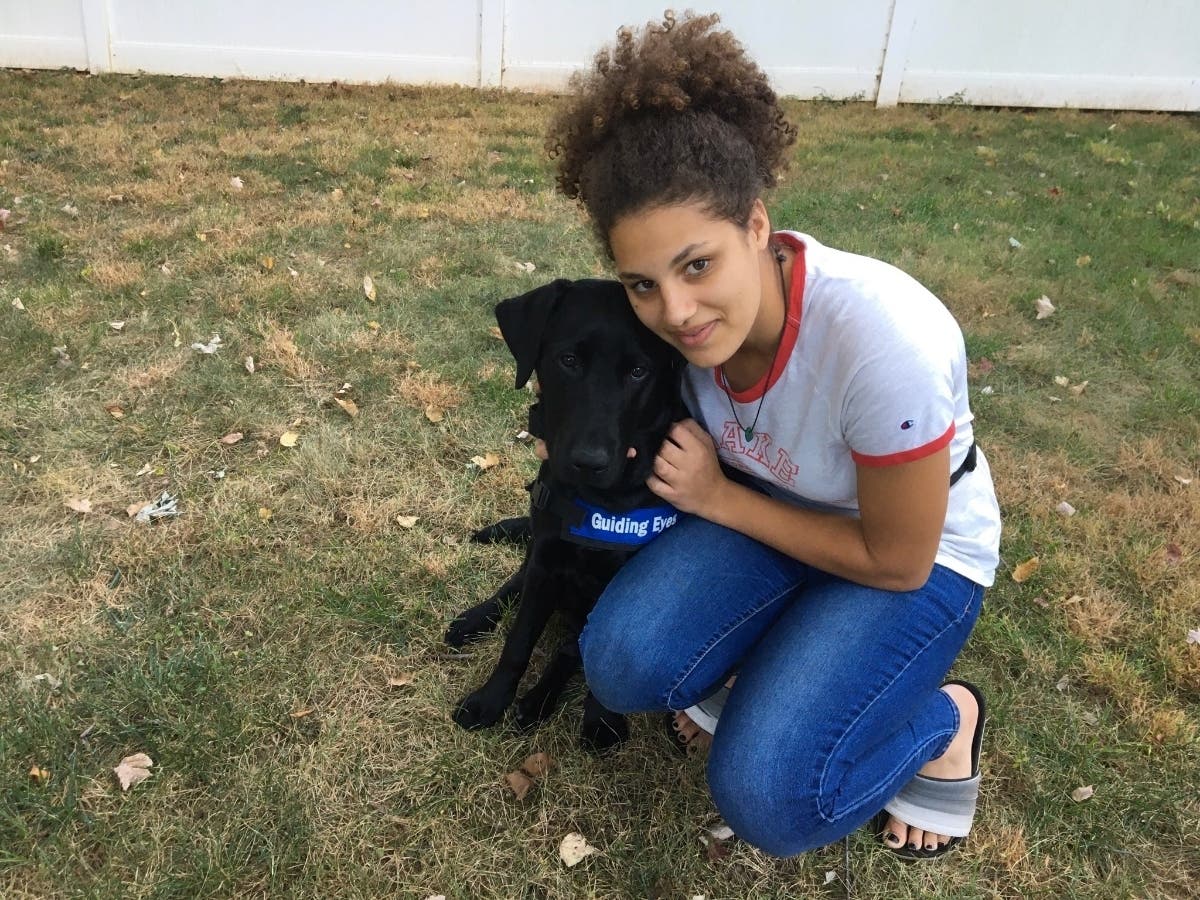Pets
Vienna Family Raises Guide Dog In Training
Meet Percy: a Vienna military family is raising him before he trains to become a guide dog for a blind or visually impaired person.
VIENNA, VA — Percy may seem like your average dog. On this particular October afternoon, the black Labrador could be found lying by his companion's side on the porch before an afternoon walk. But these behaviors are a crucial part of his training so he can one day serve as a guide dog for a blind or visually impaired person.
Mother and daughter pair Jennifer and Ellie Butler took Percy into their Vienna home through Guiding Eyes for the Blind, a New York-based non-profit training guide dogs. As puppy raisers, they're tasked with raising him before he can go through formal guide dog training. That involves teaching Percy manners and socialization so he's prepared to advance into training.
This is the first time they're raising a puppy through the program. The military family had lost their old dog before learning about the guide dog program. Ellie, a senior at Flint Hill School, wanted a new dog but her mother didn't think it was the right time. The puppy raising program proved to be the perfect compromise.
Find out what's happening in Viennawith free, real-time updates from Patch.
"The dog will leave the same time Ellie leaves for college," Jennifer told Patch.
The Butlers took in Percy when he was a 4-month-old puppy, and he's now an 8-month-old. Dogs stay with the raisers for 12 to 16 months before being sent to Guiding Eyes for the Blind training staff for six to 12 months. If a dog completes training, the nonprofit will match the dog with a blind or visually impaired handler based on numerous factors. Guiding Eyes for the Blind runs on donations, so blind or visually impaired individuals do not pay to receive a guide dog.
Find out what's happening in Viennawith free, real-time updates from Patch.
If a dog does not meet the criteria to become a guide dog, they may become detection dogs, search and rescue dogs, therapy dogs or simply pets available for adoption.
At the Butler's home, Percy must learn not to eat without permission, take things off the floor, pull on the leash or react to background noises, among other behaviors. The Butlers must take Percy with them wherever they go, because showing him places like busy roads and shopping centers is important for his socialization. That means he goes to Jennifer's office several days a week and accompanies Ellie on trips to Starbucks and doctor's offices while sporting a Guiding Eyes for the Blind vest.
"We're supposed to expose him as much we possibly can," said Jennifer.
They also must attend the program's puppy classes, where they've met other puppy raisers. According to Jennifer, advice from repeat puppy raisers has helped make the experience with Percy easier.
The mother and daughter can plan around their schedules to each care of Percy. The program can also be flexible to let raisers keep a dog for a limited time period, as long as there's consistency for the dog.
For Ellie, it's not all work raising Percy. At one point in our interview, she picks up Percy and holds him in her lap. "There [are] times when you can play in the yard. You can have a lot of fun," she told Patch. "He just makes you laugh sometimes."
To learn more about Guiding Eyes for the Blind and becoming a puppy raiser, visit www.guidingeyes.org.
Get more local news delivered straight to your inbox. Sign up for free Patch newsletters and alerts.
